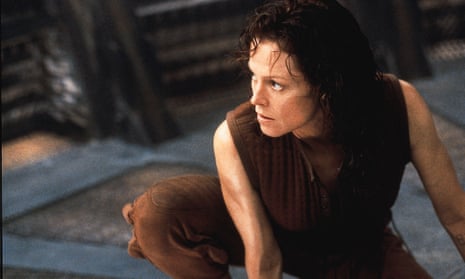With the mood between the sexes at peak combative (wary, territorial, mistrustful), it sometimes seems that anything, from the cultural to the medical, from the valid to the absurd, can set off another burst of gender-themed gunfire.
In one example, the Daily Mail ran a story about prostate cancer, presenting it as “a bigger killer than breast cancer”. It was as if these deadly diseases were in direct competition (in a way that, say, lung and pancreatic cancer aren’t), stoking male paranoia that their disease was being marginalised by a “woman’s disease”. Of course, the truth is not so simple, but these are the binary laws of provocation – unsettle, goad, then let the discontent ferment.
Elsewhere, the playwright and screenwriter David Hare, interviewed for his new TV series Collateral, was quoted as saying: “I’m sick to death of hearing about the need for strong women as protagonists. It’s a boring cause.” What was this heresy? Perhaps Hare should be captured, placed inside a wicker woman, and publicly burned as an example to others?
However, reading the whole interview, it transpired that Hare, (who has written many female characters, felt, and I paraphrase, that writing generic Strong Women was limiting and denigrating compared with writing living, working, talking, equal real women, who could be strong, weak, clever, silly and every human characteristic in between.
So, Hare was not against writing “strong women”, he was against writing cliched women, which is a sound standpoint. After all, there are a fair few examples of “strong-woman-by-numbers” characters – workaholic, sardonic, brutal but fair, sarcastic but sexy, probably smokers, even more probably cops, childless (or with children horribly scarred by their working hours), scornful of the male gaze but with a suspiciously great, figure-hugging wardrobe … yada, yada, yada, blah, blah, blah.
They’re not always dressed for fighting zombies in a sexy post-apocalyptic showdown, but they may as well be. We all know the drill. It’s as though female viewers are supposed to be so grateful that a woman isn’t cooing over the achievements of a man, or weeping at not being chosen by a man, that any “strong” stereotype will do, however cartoonish.
The Strong Woman can be as boring and limiting as any other stereotype and must be resisted. In the real world, the near-fetishisation of these types can sometimes make “ordinary” women feel inadequate and weak. In the same way, female characters can’t just be, they must “represent”. This is what Hare seems to be urging – a refusal to bow to cliche. If our gender wars become ever more deeply entrenched, the first casualty will be nuance.

